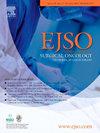营养、合并症和并发症对腹腔镜胃癌根治术后胃癌患者长期生存的影响:一项10年队列研究
IF 2.9
2区 医学
Q2 ONCOLOGY
引用次数: 0
摘要
背景:以往关于胃癌围手术期影响的研究大多依赖于单一的评分系统,忽略了各因素之间的相互作用。本研究采用年龄校正Charlson合并症指数(ACCI)、营养风险筛查-2002 (NRS-2002)和Clavien-Dindo分级,评估围手术期关键条件对胃癌患者长期生存的影响。方法:对2004年1月至2023年12月在广州南方医科大学南方医院行腹腔镜胃癌根治术的2420例胃癌患者进行分析。基于术后并发症、合并症负担和营养状况,采用Clavien-Dindo分类、ACCI和NRS-2002进行分析,并比较它们对长期生存的影响。结果:低合并症负担患者的生存率明显高于高合并症负担患者(5年:72.5%,10年:64.4%)。营养状况较好的患者生存率也高于营养不良患者(5年:72.6%,10年:65.0%)。然而,术后并发症对总体生存趋势无显著影响(P = 0.14)。在ACCI评分相同的患者中,营养不良患者的生存率明显较低(5年:44.8%,10年:31.1%)。此外,在营养状况相同的患者中,有术后并发症的患者生存结果明显较差(5年:49.8%,10年:32.2%)。结论:建议将营养状况与合并症或术后并发症相结合,更准确地评估胃癌患者围手术期的状况。改善这些条件有望提高术后的长期总生存率。本文章由计算机程序翻译,如有差异,请以英文原文为准。
Impact of nutrition, comorbidity and complication on long term survival in gastric cancer following laparoscopic radical gastrectomy: A 10-year cohort study
Background
Previous studies on perioperative influences in gastric cancer have largely relied on single scoring systems, overlooking the interaction between factors. This study utilized the Age-Adjusted Charlson Comorbidity Index (ACCI), Nutritional Risk Screening-2002 (NRS-2002), and Clavien-Dindo classification to assess the impact of key perioperative conditions on long-term survival in a large-scale cohort of gastric cancer patients.
Method
This study analyzed 2420 gastric cancer patients who underwent laparoscopic radical resection between January 2004 and December 2023 at Nanfang Hospital, Southern Medical University, Guangzhou, China. The analysis, based on postoperative complications, comorbidity burden, and nutritional status, was conducted using Clavien-Dindo classification, ACCI, and NRS-2002, and compared their impact on long-term survival.
Result
Patients with a low comorbidity burden have significantly higher survival rates compared to those with a high comorbidity burden (5-year: 72.5 %, 10-year: 64.4 %). Patients with better nutritional status also have higher survival rates than those with malnutrition (5-year: 72.6 %, 10-year: 65.0 %). However, postoperative complications do not significantly affect overall survival trends (P = 0.14). Among patients with the same ACCI score, those with malnutrition have significantly lower survival rates (5-year: 44.8 %, 10-year: 31.1 %). Furthermore, among patients with the same nutritional status, those with postoperative complications have markedly worse survival outcomes (5-year: 49.8 %, 10-year: 32.2 %).
Conclusion
A more precise assessment of the perioperative condition in gastric cancer patients would be recommended via integrating nutritional status with comorbidities or postoperative complications. Improving these conditions are expecting to enhance the long-term overall survival postoperatively.
求助全文
通过发布文献求助,成功后即可免费获取论文全文。
去求助
来源期刊

Ejso
医学-外科
CiteScore
6.40
自引率
2.60%
发文量
1148
审稿时长
41 days
期刊介绍:
JSO - European Journal of Surgical Oncology ("the Journal of Cancer Surgery") is the Official Journal of the European Society of Surgical Oncology and BASO ~ the Association for Cancer Surgery.
The EJSO aims to advance surgical oncology research and practice through the publication of original research articles, review articles, editorials, debates and correspondence.
 求助内容:
求助内容: 应助结果提醒方式:
应助结果提醒方式:


